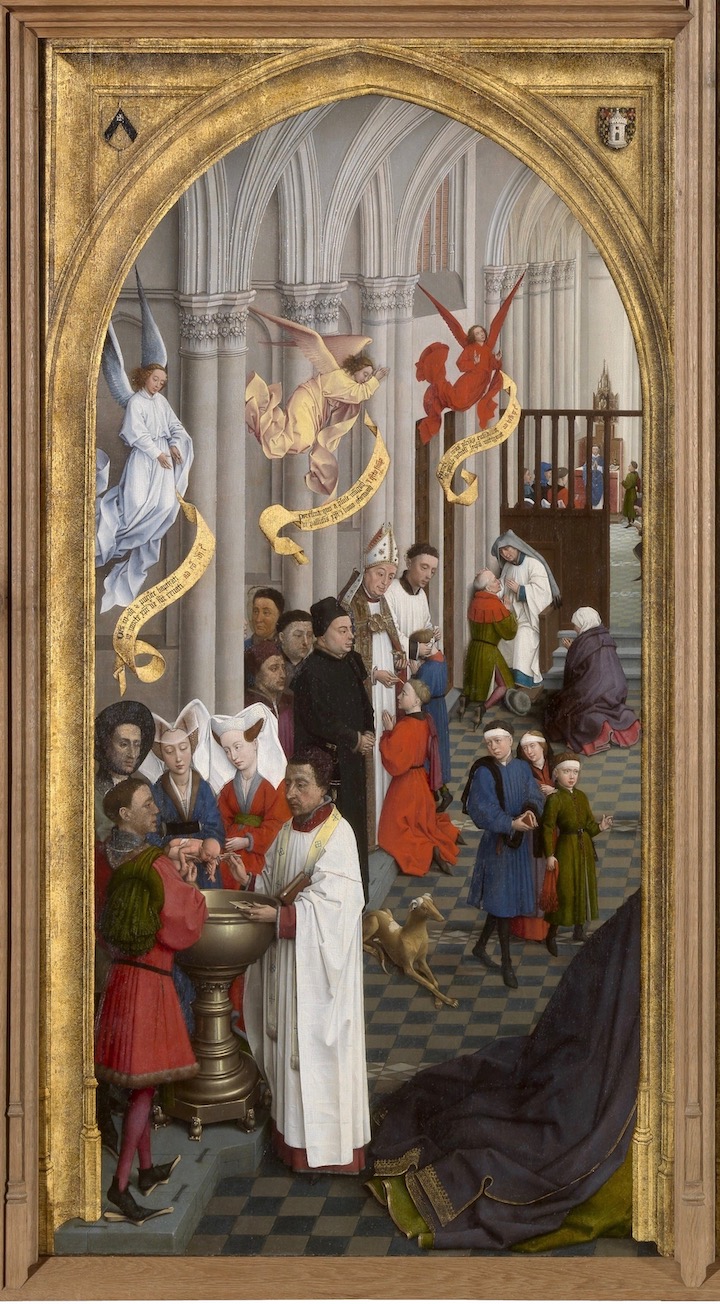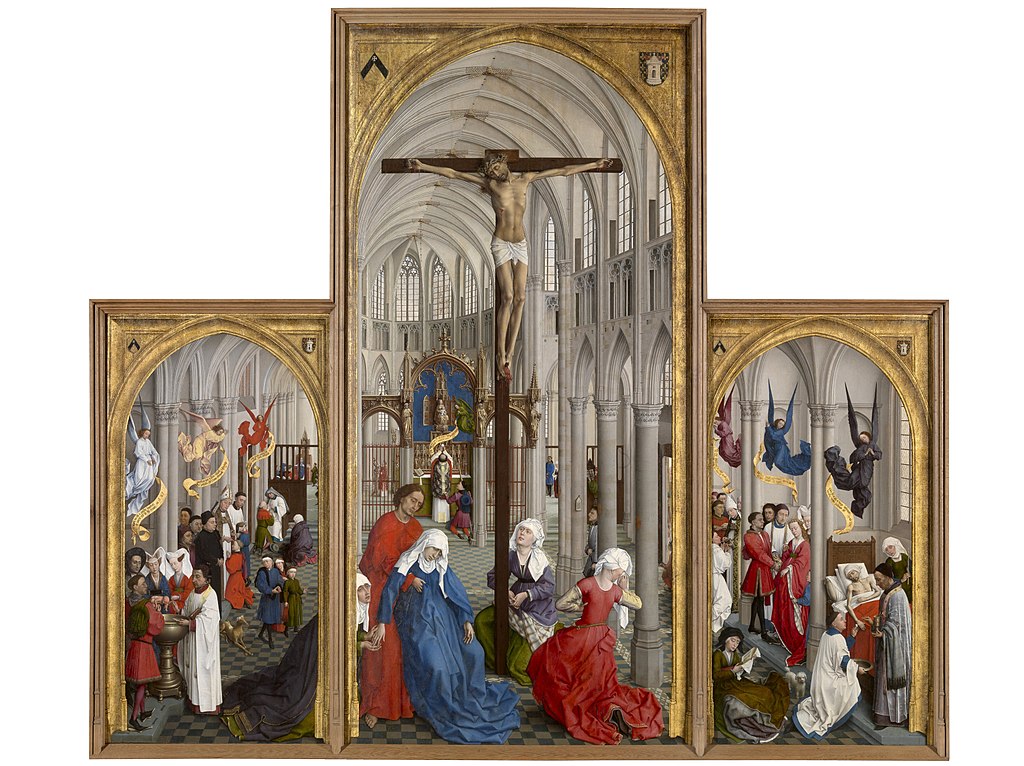These days, there are inevitably many grandparents who have raised their children in the Faith, but had difficulty encouraging baptisms of grandchildren after their kids fell away from the Church. Meanwhile, grandparents are often put to use for days – perhaps months or years – of babysitting; they’re there to change diapers, push the stroller, take the little ones to school or preschool, etc. And no doubt, many with “unchurched” sons or daughters, have thought, “Well, I’ll just do the baptism myself.” A relative of mine in a difficult marital situation did precisely that herself.
Individual Catholics may licitly baptize any infant in danger of death; but otherwise, the Church strictly discourages them from taking the matter into their own hands. Even in danger of death, things may go awry, as happened in Italy in 1851 when it was discovered that a sick Jewish boy, Edgardo Mortara, had been given an emergency baptism by a servant of the family.
Because of Italian laws at the time, a baptized Catholic had to be raised by Catholics. To “solve” this controversy, Pope Pius IX decided to raise the boy himself, causing all kinds of legal problems. Edgardo eventually became a Catholic priest – which by no means satisfied Jewish authorities, and certainly helped create future laws making sure that such things would never happen again.
Many very secularized couples now would doubtless feel the same way as those Jewish parents, if they thought that their own father or mother secretly baptized their children; family breakups would be a frequent result. The Church insists that baptism is not a magic spell, but just the beginning of what Catholic parents begin to do in raising their children in the Faith.
But what happens to children who die without baptism? Catholic theology generally states that the sacrament of baptism, properly administered, cleanses from sin, and creates a special “mark” on the soul of the recipient, making it possible for them to be received into supernatural life (i.e., the beatific vision) if they die in the state of grace.
What, then, happens to infants born with original sin, still incapable of actual mortal sin, if they die unbaptized? What happens with all our modern “pagan babies” that are never baptized? Especially, what happens to babies aborted or miscarried?
Some Christian mothers make improvised efforts to baptize them before or after birth, devising methods that may or may not be orthodox. But what about the little humans that are never baptized?

On this subject, the tradition of the Church is . . . troubled. In the early Church, up to the time of St. Augustine, the Church generally held that children who died without being regenerated by baptism entered into a place of purely natural happiness called the limbus infantium (“Children’s limbo”).
St. Gregory Nazianzen’s opinion reflects the common opinion of the Greek Fathers: “It will happen, I believe . . . that those last mentioned [infants dying without baptism] will neither be admitted by the just judge to the glory of Heaven nor condemned to suffer punishment, since, though unsealed [by baptism], they are not wicked. . . . For from the fact that one does not merit punishment it does not follow that one is worthy of being honored, any more than it follows that one who is not worthy of a certain honor deserves on that account to be punished.”
St. Augustine initially accepted this opinion, but in his opposition to Pelagianism, which held that infants could be saved without baptism, he turned to a more literal interpretation of Gospel passages that insisted baptism was necessary for salvation. He concluded that because of original sin unbaptized infants would share in the punishment of the damned, but only in the mildest way. The authority of Augustine was so great that St. Jerome, Gregory the Great, and other doctors of the Church agreed with him.
But St. Thomas Aquinas, like other medieval scholastics, was “uncomfortable” with Augustine’s opinion and looked for an interpretation more in line with doctrines of divine mercy.
The main “punishment” suffered in the “limbo of children,” he argued, would be a lack of the beatific vision. Infants could have a natural knowledge and love of God, in line with their natural capacities, and have natural happiness; but since the beatific vision was supernaturally made possible only by baptism, they would not have access to that reward.
Also, they would not know about, or feel the loss of, the beatific vision; they would have no inkling of the supernatural destiny that they had missed, since such possibilities are beyond the capacities of natural human knowledge.
At the present time, the Church generally agrees with Aquinas, in spite of some dissent among theologians who think everyone will be granted the beatific vision. The Vatican website on this subject comments:
What has been revealed to us is that the ordinary way of salvation is by the sacrament of Baptism. [Other possibilities discussed by theologians] should not be taken as qualifying the necessity of Baptism or justifying delay in administering the sacrament. Rather, as we want to reaffirm in conclusion, they provide strong grounds for hope that God will save infants when we have not been able to do for them what we would have wished to do, namely, to baptize them into the faith and life of the Church.
Thus the Church offers only a hope, because of Scriptural references and long-standing traditions concerning the necessity of baptism for salvation.
Even if there is such a thing as the “natural happiness” of Limbo, many secular people, even atheists, who are turned off by the Christian idea of heaven as the “beatific vision,” might – strangely – prefer a life of eternal natural happiness!
But other problems exist: eating, drinking, sexual relations, working? What about Christ’s answer to the Sadducees that “after death the faithful will be as angels of God” – with no marriage?
Understanding the “hope” of Limbo still needs considerable theological work.
*Image: Baptism (foreground) from the Seven Sacraments by Rogier van der Weyden, 1445-50 [Royal Museum of Fine Arts, Antwerp] This is the left panel of a triptych, below. (Also depicted in the left panel are Confirmation and Penance.)















